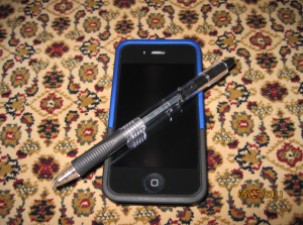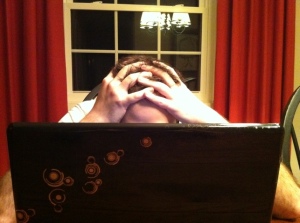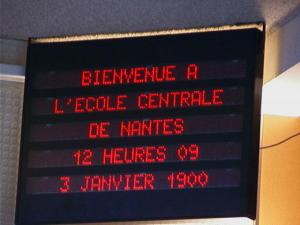Last year I submitted a piece by email to my local newspaper for Op-Ed consideration, and then left for a four-day bachelor party in Florida. When I was able to see straight again at the close of the trip, and got to an Internet connection, I saw that I had received three emails from the newspaper’s Op-Ed editor. She had wanted to run my piece in the Sunday edition but needed to talk to me about it, and all she had was my email address. I frantically called her Monday morning, but it was too late.
Missing a publishing opportunity because of missed email was a bitter pill to swallow. I swore it would never happen again. You might be thinking that I could have avoided the problem by including my cell phone number with the submission. But then I wouldn’t have this little story.
Getting an iPhone solved the problem of the missed email. But I’ve discovered two other advantages that have improved my life as a writer. It allows me to take notes without looking like I’m taking notes, and it allows to me read without looking like I’m reading.
For years I carried around a little notebook. If I thought of something, I would write it down. The problem was that people sometimes acted funny when they saw me taking notes. “What are you writing?” they would ask, or “Are you writing about me?” or “Can I read what you wrote?” or “I’m going to take that notebook when you are sleeping and read it!” That kind of attention affected my prose.
With the iPhone, however, they don’t know I’m taking notes. They think I’m just texting or, better yet, playing a video game. Sometimes I angle the device this way and that to make it look like I’m racing a car. And as soon as I’m done recording my thoughts, with one tap I can email the notes to myself for later use, with no crumpled up receipts to clutter the coffee table and spark an argument.
Reading books in public used to be a problem, too. Bringing War and Peace to the dinner table was generally interpreted as rude, no matter which translation. One evening as I dined with family, I noticed that someone was holding his iPhone under the table to watch a YouTube video of washed-up celebrity chefs falling down flights of stairs. I asked my fellow diners why he was allowed to watch a video, while I was not allowed to read. Everyone stared into their mashed potatoes.
The message was clear. There was a double standard for new technology and old.
The iPhone has made it possible to read at the dinner table again. I read books on my iPhone and everyone thinks I’m on Facebook looking at wedding pictures of people I don’t really know. Attending parties with a book, even a book that had received good reviews, always met with stares. Now people just stare at their devices, as I stare at mine. Just like with the notes, an unacceptable rudeness masquerades as an acceptable one.
And sometimes when the party’s over, and the potato salad scraped off the plates, and I’m back in my room, alone, I pick up a notepad and a book…and find them both a little heavy.
What’s your experience been? How has an iPhone (or similar device) changed your life as a writer? Or are you still carrying around a notebook and getting weird looks?









